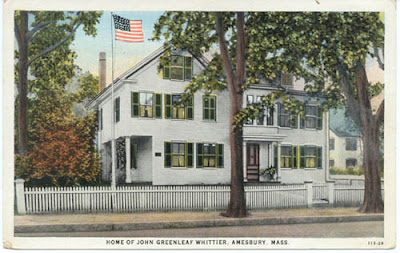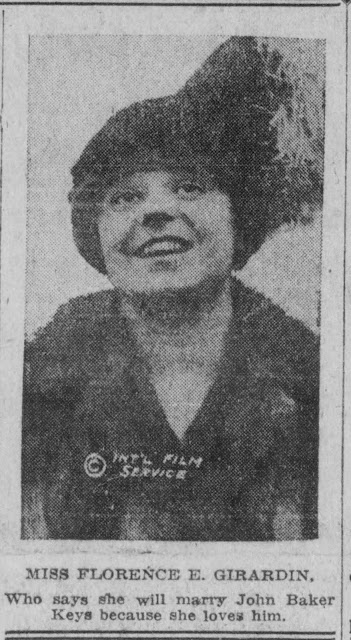Captain J H Berry of Newbury, Massachusetts pressed charges of assault against Mary Bridges. (1822) Madame Bridges ran a “house of ill fame” in Marblehead and Berry was told on good authority he would receive a satisfactory, warm welcome. Berry did not get that lucky. Bridges stabbed him and he almost to bled to death in a snow bank. The police rescued Berry from his frosty condition and arrested Bridges. Bridges demanded a trial and told Judge French that Berry was “noisy and riotous” and got a little too demanding with her ladies. He could not take “NO” for an answer. She threatened harsh measures with him and asserted to take him out with her sword. Bridges testified that she booted him out the door with help from her sister and insisted that Berry must have received the wound trying to get back in through the window. She claimed she had placed a sword in the window for safety precautions. The judge was not buying Madam Bridges story and slapped her with a hefty fine and ordered her to pay Berry for his medical cost.
In 1862 The Newburyport Herald pleaded with Amesbury to “ferret out the dastardly and mean rascal” who robbed the celestial garden of poet John Greenleaf Whittier. The county was suffering a record fruit famine. The goblin thief plucked the poets blessed supply. Whittier’s luscious Bartlett pear tree was left barren. The Port editor was waging holy war on the “little imp, without wings.”
Salem MA resident George Peckham was not aware that Polygamy was a serious offense. The “seven year itch” festering in his marriage to Mary Elizah Mundee needed some scratching. Peckham remedied it by taking another wife. It was not long before Mary got wind of this and turned him in to the authorities.
Essex County’s Judge Russell was not humored by Peckham’s nonchalant response when he told the court it was a “spur of the moment” thing to marry Ms. Browne. Peckham landed two years in the state prison (1860) for his polygamist ways.
Lucy Lambert Hale, daughter of U. S. Senator John Parker Hale and Lucy Hill Lambert caused great scandal for her New England blue blood lines. The Newbury Hales and Rowley Lamberts were buzzing away when Ms. Lucy’s photo was found in the pocket of John Wilkes Booth when he captured and killed on April 26, 1865.
Lucy's photo was just one of four other women. Booth was quite the piranha when it came to hooking in the ladies. His performance as Romeo had “caused ecstatic flutters from Chicago to Washington.” He was the George Clooney of the day.
A strange proclamation of love in a Valentines note came to Lucy from Booth in 1862. Booth’s allure worked on Lucy and soon she was admitted into the Booth Babes Club.
Lucy was a looker herself and had captured the hearts of many. Famous poets Oliver Wendall Holmes and William Chandler sang her praises. Robert Todd Lincoln, eldest son of President Lincoln and John Hay, Lincoln's assistant private secretary fancied her as well.
However, when most were grieving Lincoln’s death, Lucy was mourning for her Booth. A New York Herald reporter wrote that Booth's fiancée, was "plunged in profound grief." John Hale must have used his influence to keep Lucy’s name out of the limelight. The Boston Herald noted, “she is slow to believe him guilty of this appalling crime," and sinks in deep sadness.
Daniel J Hussey, a 21 year old Port local was left hung out to dry by a “strange lady friend” after a night of heavy petting and drinking. Hussey was found hanging from the window of an unoccupied house nearly frozen to death. He could not recall the events that led him into the position to which he was found.
A “maddened” bull escaped the slaughterhouse in Lynnfield. The great bull hunt was made up of police and over 50 local men armed with guns, pistols, and revolvers (1906)
Although the bull terrorized hundreds until he was caught in Melrose Heights his main target was on selectmen George W Aboott. The Abbott family was big into butchery and the bull apparently had some scores to settle.
Charles Toothaker, a carriage maker for Sargent & Harlow Co. in Amesbury helped himself to some hot cloth from the factory and sold it in the city. He bought himself a one way ticket down South. (1855). Toothacker fell in love with Virginia and a rich plantation heiress. They were married within weeks. All seemed sweet until Constables Heath and Jones showed up. They tracked him down like blood hounds.
The constables had Toothaker on the train to transport him north, but hundreds assembled at the depot and threatened to rescue him saying they were really Northern Abolitionist.
The only way the Yanks could get Toothacker out was through the court. When Judge Riley was given the facts about the theft he ordered Toothacker to be sent back. This would be the last time he would pull the wool over any eyes
The constables had Toothaker on the train to transport him north, but hundreds assembled at the depot and threatened to rescue him saying they were really Northern Abolitionist.
The only way the Yanks could get Toothacker out was through the court. When Judge Riley was given the facts about the theft he ordered Toothacker to be sent back. This would be the last time he would pull the wool over any eyes
John Baker Keyes, a Wolfe Tavern guest made some juicy headlines. (1918) The 63 year old millionaire tycoon loved the ladies, especially the young ones. But his other love for liquor often left him dry of dames and drunk with remorse.
Keyes left the Wolfe to meet up with buddies for happy hour at the Harvard Club in Boston. Florence Girardin, a 19 year old Harvard Club elevator operator caught Keyes attention. According to the papers Keyes’ pals said it was love at first sight. Keyes was glowing and over martinis that afternoon he exclaimed: “She is the one for me!”
After a few weeks of courting it was made public Keyes was taking his new elevator girl to the next level. Keyes proposed to Girardin and showered her with expensive gifts. Keyes’ sister Miriam Hollister, wife of U. S. District Judge Howard Hollister saw the smutty headline in the Society pages a few days later.
Hollister was not keen on the idea of toasting her brother’s latest romance. She appointed guardian Edgar Stark, officer of the Union Savings Bank to oversee her brother’s affairs.
Keyes went on a three week bender and by the end he started to become intolerant of the Port’s temperate ways. He arrived at Wolfe intoxicated and demanded a drink. The clerk reminded him it was a “dry” town, but Keyes grew more aggressive. He jumped over the counter and began swinging at the clerk who called in the fuzz. Keyes was taken in custody.
Port’s Charles W. Wells, Captain of the Watch told reporters Keyes was acting like a sailor away in some foreign port. Wells said a stint at the Parker House clearly showed Keyes’ erratic behavior. In a drunken rage over a love affair gone bad he overflowed his bath tub and threw furniture out the window. He made good on the room damage, but left a trail of bad press.
When the news of Keyes arrest was announced reporters surrounded Girardin like sharks. The feeding frenzy turned to the subject of the families attempt to sabotage the marriage plans. She said, her “family always bore a respectable name,” and “that Stark can not drag her through the mud.” Then, she screamed out: “How do I get to Newburyport! I must go to him!”
Girardin hopped a cab with brother Earl to rescue her Romeo. However she was too late. While Keyes was passed out Stark checked him out of the Wolfe and escorted him back home to Cincinnati. For weeks she insisted he would return and marry her, but Keyes left his heartbroken elevator love at ground zero.
When “Bossy” Gillis had his gasoline station license suspended he was not spooked. He trotted past city hall officials and opened up shop with an announcement in the Newburyport Herald: “Ghost Town Horse Taxi—Bossy Gillis, Market Square. No OPA Regulations. Local call 25 cents. Inebriates Free.” (1944) Middle Photo from Mary Baker Blog
The Port’s “one armed bandit” case was nothing short of a free handout for Judge Vincent Kelleher. (1955) Charles W. G. Lamphrey thought he was pulling a fast one by hiding a slot machine in his gasoline shop. However, John Valli and George Perkins decided to steal the cash cow. They carted the machine down the street and were nabbed by some nosey neighbors.
When the two convicts had their day in court they explained how they planned to break open the slot machine to get the coin. The judge let them out on bail, but hit Lamphrey with a huge fine. Sometimes justice comes through any means.










No comments:
Post a Comment